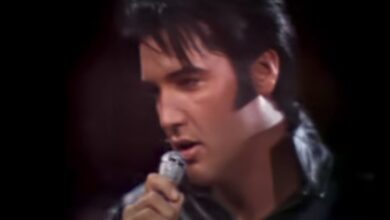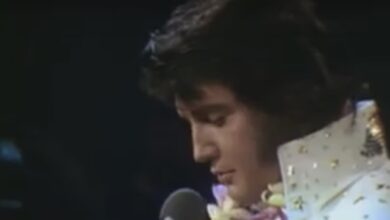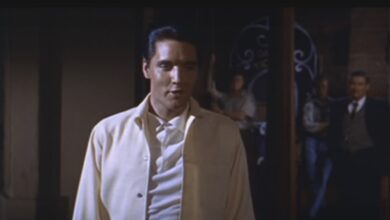Elvis’s Music: Enduring And Resonant Through The Ages
Elvis Presley, often hailed as the “King of Rock and Roll,” was not just a music icon; he was a cultural phenomenon whose influence transformed the landscape of popular music. Born to a working-class family in Tupelo, Mississippi, he experienced poverty in his early years, a backdrop that would inform much of his later artistry. Elvis’s family moved to Memphis, Tennessee, during his adolescence, which proved to be a pivotal moment in his life. It was in Memphis that he was exposed to a variety of musical genres, including gospel, blues, and rhythm and blues, shaping his unique sound that blended multiple influences.
His foray into music began when he recorded a demo in 1953 at Sun Studio, where Sam Phillips, the owner, recognized his potential. This led to the release of his first single, “That’s All Right,” which garnered significant attention and marked the dawn of a musical revolution. Elvis’s style was revolutionary; he combined African American musical influences with a more mainstream sound, effectively bridging racial divides in a segregated America. His energetic performances and distinct voice captivated audiences, setting the stage for rock and roll.
The mid-1950s were marked by an explosion of Elvis’s popularity, characterized by chart-topping hits such as “Heartbreak Hotel,” “Hound Dog,” and “Love Me Tender.” His unique blend of styles transcended cultural boundaries and resonated with a diverse audience. The appearance of Elvis on television, particularly his performances on shows like “The Ed Sullivan Show,” captivated the nation and solidified his status as a household name. His charisma and provocative stage presence, both visually and musically, challenged societal norms of the time, especially in the conservative climate of 1950s America.
Initially a singer, Elvis rapidly expanded his career into acting, starring in numerous films throughout the 1960s. Movies like “Jailhouse Rock” and “Blue Hawaii” showcased not just his musical talent but also his appeal as a leading man in Hollywood. However, while these films were commercially successful, many critics viewed them as formulaic and lacking the depth of his earlier musical contributions. Nevertheless, the soundtracks and accompanying songs from these films, such as “Can’t Help Falling in Love,” continued to solidify his place in popular music.
Elvis’s career was not without its struggles. The late 1960s saw a decline in his popularity as musical tastes shifted toward the Beatles and the British Invasion. However, his 1968 “Comeback Special” re-established him as a formidable force in the music industry. This televised performance marked a return to his rock and roll roots, showcasing his vocal strength and charisma, sparking a renaissance in his career that led to a series of successful albums and performances.
Among his memorable songs, “And I Love You So” epitomizes not only Elvis’s vocal capabilities but also the emotional depth he brought to his music. The song, originally composed by Don McLean, found new life in Elvis’s rendition, which was released in 1973. The heartfelt interpretation displayed maturity, reflecting a more introspective side of the artist. The soothing melody and poignant lyrics melded seamlessly with Elvis’s expressive voice, marking it as one of his significant contributions to music, restoring a sense of classical romanticism in pop culture at the time.
In addition to his technical vocal skills, Elvis’s ability to evoke emotion through song remains unparalleled. Audiences connected with his yearning and passion, and “And I Love You So” is a prime example of this phenomenon. The song’s themes of love and devotion resonate across generations, making it a timeless classic. His version climbed the charts and is still celebrated today, signifying the power of love in its myriad forms.
Elvis Presley’s cultural significance extends beyond his artistic output. His iconic style, characterized by flamboyant costumes and signature hairstyles, set trends that reverberated through the fashion world and influenced countless artists and musicians. Beyond fashion, his mannerisms and dance moves became emblems of the rock and roll era, inspiring generations of performers who came after him. His influence is evident in genres and styles that followed, from rock to pop to country music.
The impact of Elvis’s life and career can be seen in how he paved the way for future artists. Musicians such as Michael Jackson, Prince, and even modern pop stars cite him as a major influence on their work. His adventurous spirit in blending musical styles inspired many who would come to redefine genres. Additionally, his journey through fame, personal struggles, and ultimate untimely death at the young age of 42 only added to his legend, ensuring his name would endure through the ages.
In viewing the totality of Elvis Presley’s career, it’s clear that he was more than just a performer; he was a cultural touchstone whose legacy thrives in various forms today. Elvis’s ability to connect deeply with audiences, the emotional power of his songs, and his lasting influence on music and culture demonstrate his enduring significance. As time passes, new generations continue to discover and appreciate his contributions to the world of entertainment, ensuring that the King of Rock and Roll remains an integral part of music history.



